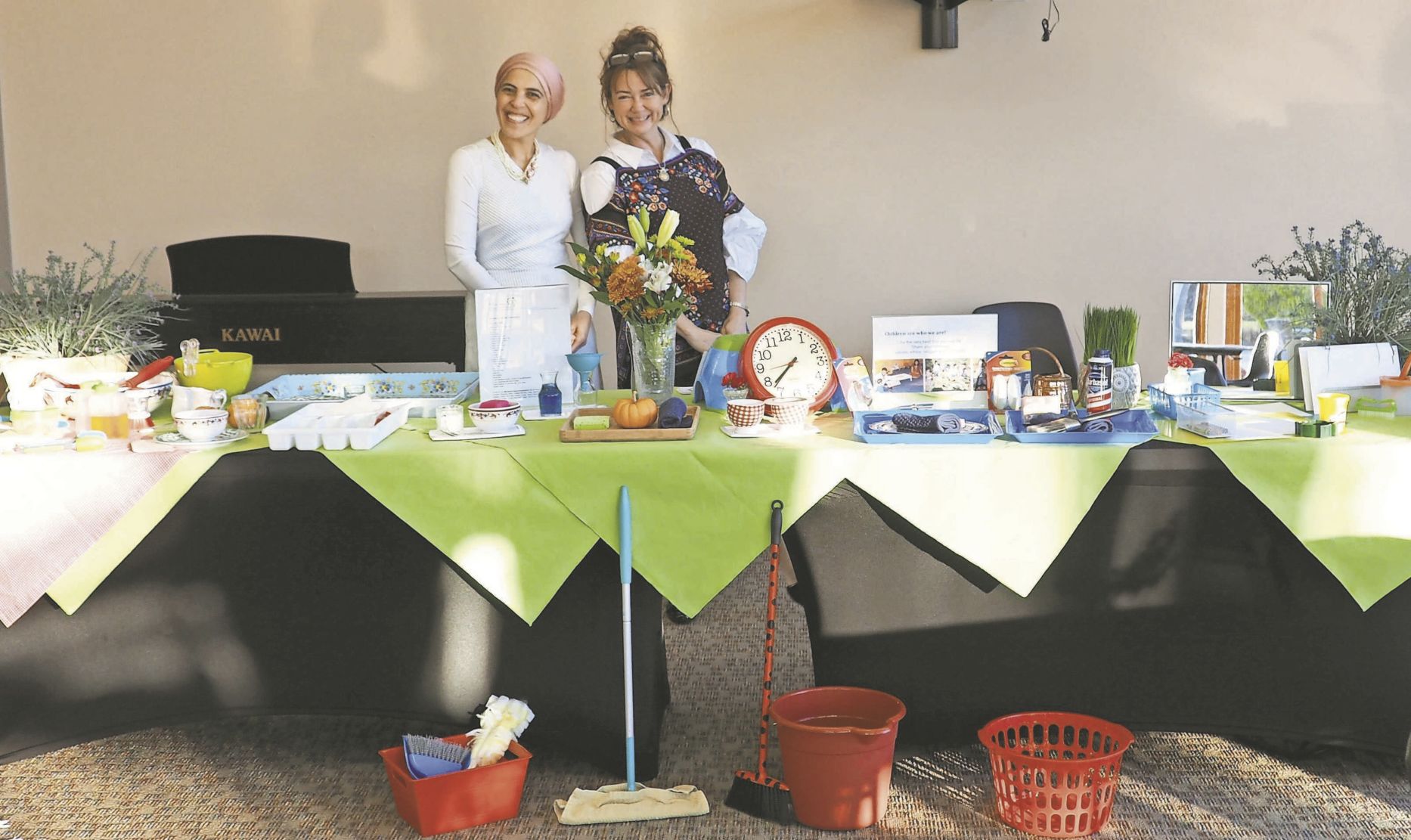Princeton Montessori School recently hosted a workshop for parents of young children, titled “Montessori In Home.” The event, held Thursday, October 26th at the school’s Cherry Valley Road campus, was open to the public and led by two of the school’s veteran Toddler teachers: Alona Procaccini and Sue Saad.
The presenters offered strategies for creating a home environment that reflects the Montessori philosophies of freedom within limits and nurturing independence.
One of the key messages of the workshop was the importance of order and the ability of the child to have mobility within their home environment. Parents were advised to create rooms that are not only safe, but that also provide daily opportunities for independence.
“Remove objects you don’t want them to touch, because they want to touch everything,” said Procaccini. “Children should feel free in their own home. They need a space in every room of the house where they can move freely and help you with something.”
Procaccini suggested creating a special cabinet for the child to access pre-measured snacks and utensils, or low hooks to hang their coat on when they come home.
The presenters also highlighted strategies to assist with typical parent/child daily struggles, such as getting dressed in the morning or what to eat for breakfast. They proposed offering the child two choices for a given decision.
“The child will usually pick the second choice,” noted Saad. “So if there’s something you prefer they choose, it’s best to offer it second. Either way, it’s important to respect their choice.”
Practical life skills are a hallmark of the Montessori philosophy, and the presenters gave many suggestions for how to involve the child in daily household activities.
“Don’t wait until they’re asleep to unload the dishwasher or do the laundry,” said Procaccini, “Involve them! Ask them to sort the socks. Give them a sponge and let them wash dishes at the sink. They want to be a part of everything.”
The workshop ended with some straightforward but easily forgotten advice for parents: to be the best that you can be.
“Keep in mind that children are absorbing who you are,” observed Procaccini, “Not who you say you are, not your job, or even who you think you are, but who you are!”

